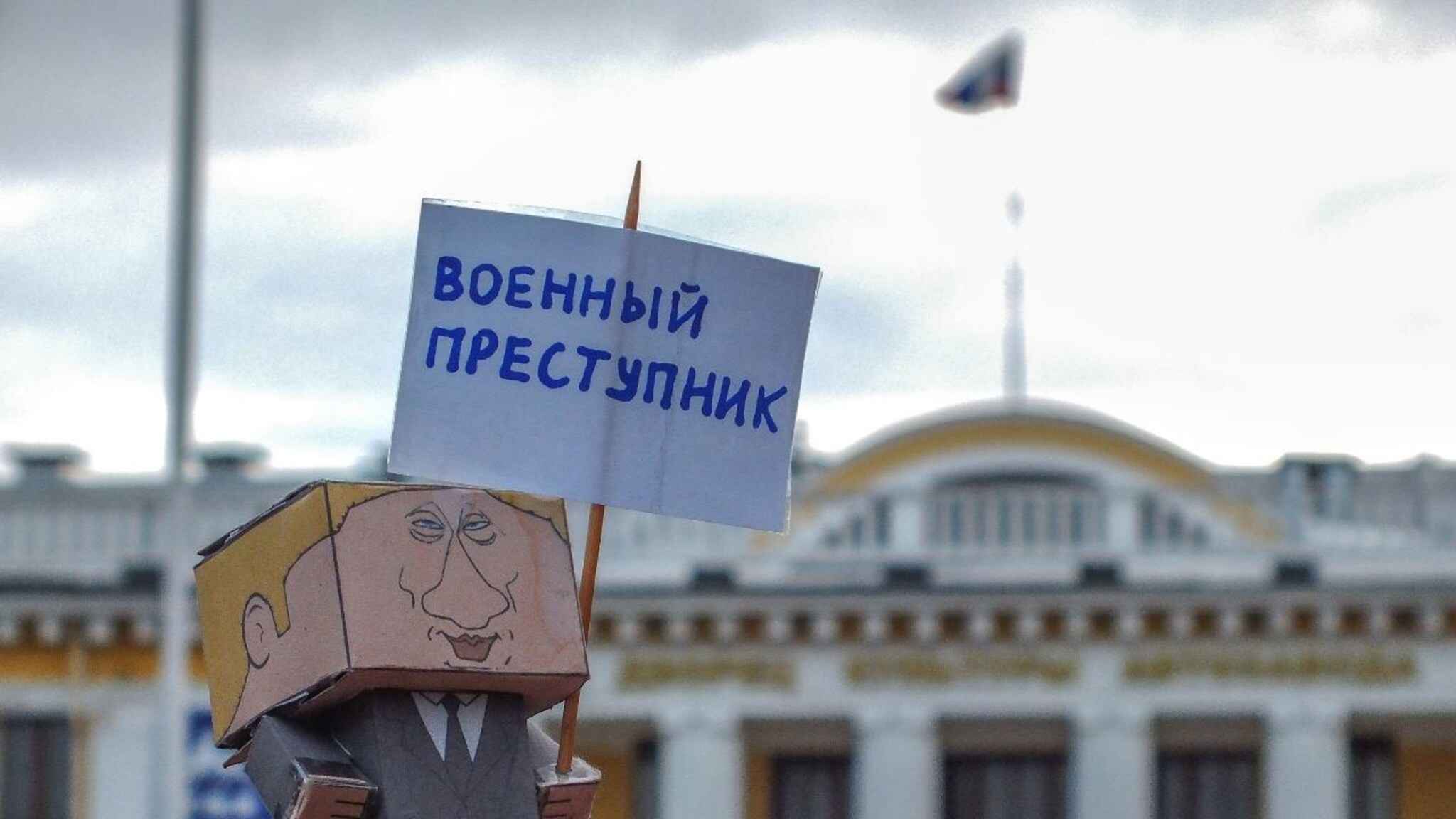More than 15,000 people have been arrested in Russia since February for criticizing the war. This was reported by the Russian NGO OVD-Info, which tracks the people who have been arrested and the charges against them. Some were arrested for protesting, others only posted critical messages on social media.
widespread resentment
“The fact that fifteen thousand people have been arrested is a sign of widespread dissatisfaction with the war. Because the threshold for demonstrating or expressing criticism is very high. Demonstrations have become increasingly dangerous over the past ten years, and this has been a gradual process,” says Leonid Drabkin. , OVD-Info Coordinator.
“When people take to the streets, they don’t know in advance what kind of punishment they can expect. Many people are fined five hundred euros or imprisoned for ten to fifteen days. The average salary in Russia is about four hundred euros per month, so the Both sentences are very harsh. 130 protesters sentenced to long prison terms. They were imprisoned for months or years for unauthorized protests or for “spreading false news about the Russian military.”
intelligent protest
So anyone who wants to protest the war without serious consequences must be smart. That’s why guides are published on Russian social media with headlines like “How do you make sure your protest activity is seen?” It contains tips like “Put protest slogans in your Tinder bio” or “Write Ukrainian flags on banknotes. You can always say you got it as a change.”
Expressions of dissatisfaction appeared all over the country, of all kinds: from Lego dolls with protest banners to graffiti, posters, flyers and more. New anonymous forms of protest are regularly created. “The tighter the screws are, the more creative people are,” says Drabkin. But it is also necessary. “Everyone who has the experience and network to organize a demonstration has been arrested or has escaped. So there is no one who can organize a large demonstration.”
Even now that people are no longer able to demonstrate on a large scale, large expressions of discontent can sometimes be seen in Russia. Last week, party participants chanted anti-war slogans at a ceremony in Saint Petersburg and the city of Ufa, more than a thousand kilometers east of Moscow. In Ufa, the singer of the well-known Russian rock band DDT gave a speech in front of eight thousand people, in which, among other things, he said: “Motherland is not the president’s donkey, and we have to kiss him. All the time.” He has won a standing ovation and is now on trial for “defaming the Russian army”.
These concerts show that there is widespread discontent. But no one knows what percentage of society is actually against war. This makes it increasingly difficult to organize protest actions.
Drabkin remains positive about the future. “There’s a battle going on between the TV and the fridge. The media is screaming that everything is going well, but there comes a point where people feel the war in their fridge. That’s going to be a turning point.”

“Lifelong zombie fanatic. Hardcore web practitioner. Thinker. Music expert. Unapologetic pop culture scholar.”








